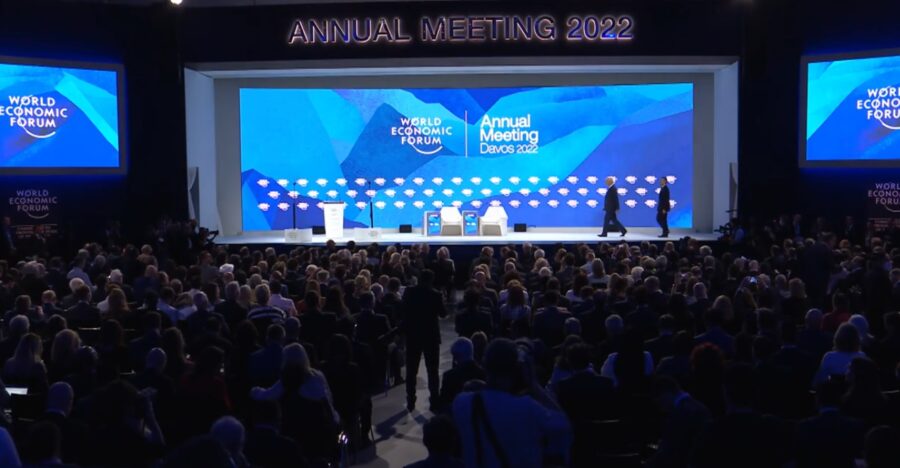Three months after the start of the Russian-Ukrainian war, the conflict and the risks it poses to the global economic recovery are at the center of the meetings between world elites, which started Monday in Davos.
The World Economic Forum kicked off today in Davos, Switzerland, with a focus at the annual meetings continuing until Thursday this week, covering several issues: the war in Ukraine, the Corona epidemic and climate change.
The forum is being held this year under the theme: “History is going through a turning point: government policies and economic strategies.”
Among the issues raised during the forum are the repercussions of the war on supply chains, energy supplies and food security.
“Our first thoughts go to war in Ukraine,” the forum’s founder, Klaus Schwab, declared when presenting the program of this year’s meetings, which are being held under “unprecedented political, economic and social conditions…”.
Ukrainian President Volodymyr Zelensky was the first president to give a speech, and he used this podium to urge the world to provide more financial and military aid to his country, and perhaps renew Kyiv’s request to join the European Union.
German Chancellor Olaf Scholz also addressed the conference on Thursday.
German Economy Minister
At the meeting, German Economy Minister Robert Habeck will deliver a speech on his country’s desire to reduce dependence on Russian energy imports.
Before the opening of the forum, Habeck called for a unified European position on banning oil imports from Russia, and said that the negotiations should be managed by the European Commission through coordinated action.
Habeck added: “It will not help now if each country begins to manage its own affairs. The strength of Europe at this stage is that it has stood and will stand together.”
During the four-day meeting in the Swiss Alps region, nearly 2,500 participants from politics, business and society will discuss solutions to international problems.
The meeting is traditionally held in mid-January, but was postponed this year due to the Corona epidemic. In January, the leaders met online instead. The forum was held last year also via the Internet.
International Energy Agency
International Energy Agency Director Fatih Birol told the forum that the energy security crisis that has intensified since Russia’s invasion of Ukraine should not lead to greater dependence on fossil fuels.
He added that directing the right investments, especially in the field of renewable energy and nuclear energy, means that the world is in need of a choice between energy shortages and accelerating the pace of climate change due to the harmful emissions that result from the use of fossil fuels.
On the sidelines of the forum, the Saudi Minister of Economy and Planning, Faisal Al-Ibrahim, said that the Kingdom will work to exploit this year’s exceptional oil revenues to accelerate diversification of the economy so that it is not dependent on fossil fuels.
Al-Ibrahim said that the Saudi government will focus on initiatives aimed at developing the non-oil economy in 2023, but it will not boost fiscal spending.
International Monetary Fund
International Monetary Fund Managing Director Kristalina Georgieva said that the financial crisis, the dollar’s rise and the slowdown in China’s economy are all factors affecting the global economy, but the IMF does not expect a global recession.
“All these factors make ratings downgrades possible and for some countries there is an increased risk of recession, but we do not expect a global recession,” Georgieva told Bloomberg TV.
In a report issued on Monday prior to the opening of the Davos Forum, Oxfam expected that 263 million people would fall below the extreme poverty line this year, i.e. an average of one million people every 33 hours, a pace offset by the census of a new billionaire every thirty hours during the epidemic crisis.
“Billionaires are arriving in Davos to celebrate their unimaginable increase in wealth,” ILO official Gabriella Bucher said in a statement.
“We are undoing decades of progress in extreme poverty, with millions of people simply facing an unreasonable increase in the cost of survival.”








